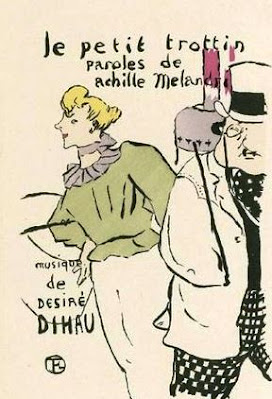Axel’s Kittel
Late in our session, I found myself telling Dr. Feight: “The story of the Gadarene swine, you know it?” Of course he did — hadn’t he also played Bible baseball in Sunday School? But I told it again anyway:
The kingdom of God is like this: There were two Cynics from Gadara, Menippus and Meleager, the first a slave that became rich by begging 300 years before Jesus, the second a poet that went from Tyre to Cos 100 years before. There was also a madman, who lived while Jesus was alive.
After the Storm, which
Jesus has stilled, he and the disciples come to the other side of the sea,
to the land of the Gadarenes — or Gerasenes, as Mark has it. There is the man, with an unclean spirit, or hundreds of unclean spirits. The boat has, it seems, cast up on the edge of a graveyard because that’s where he lives, in
the graveyard, where he has been chained to one of the tombs, but he has broken free, screaming
and shouting and tearing at himself. But when he sees Jesus, he runs to
him, though he is shouting still, “What have you to do with me, Jesus of Nazareth?” Or the demons inside of him shout it because Jesus has been speaking to them. It is they that answer, when Jesus asks the man his name. Their name is Legion, meaning 5200 soldiers and 300 horses. Yet they are afraid. They say to Jesus, don’t just
throw us out into the air. Throw us somewhere, into those pigs over there, they say. Jesus does. He throws them into the passel and the passel throws itself, or the pigs in the passel throw themselves, over the cliff and into the
sea. It makes quite a splash and people come out from town. They find the man sitting up, clothed, and in his right mind. This is dangerous, they decide, and they ask Jesus to leave. He does. The man wishes to go with him, but Jesus says, “No. Stay
here.”
“What do you think?” I said.
Dr. Feight didn’t say anything. His pen was scratching notes into his pad; then it too was silent.
“I looked up ‘in his right mind,’” I said. “I wrote it down, the Greek.” I wrestled it out of my pocket and handed it over my head to him. “Axel helped me find it in his Kittel.
“What do you think?” The chorus repeats: the scratching, then it stops.
“It is the present participle of sophrouneo.” The word sounds like a flag wobbling in the wind. And I rattle on with what I’ve found, that it goes back to classic Greek — to myth, to the tragedians, to Plato. It is hard to define. It is the opposite of mania, of hubris, of foolish immaturity, of crying like a baby. It isn’t exactly but it has to do with circumspection, modesty, proper respect, also with purpose, with knowing what we are to do, with knowing ourselves.
“Not to disbelieve,” I say, “but it’s a lot to accomplish in one miracle, a lot to accomplish just by rustling some demons out of a man and pitching them into a passel of pigs, even if after you find him a place to sit and a suit of clothes.
“It's more, I think, than I can do.” Meaning for myself. More scratching.“I got a letter from my sister.” I stop as if I don’t remember exactly when I received the letter though I do. “From Moira.* The day before yesterday. She said something about how I am always wondering if I am going to get through to the other side. Then I wonder if there is an other side. She can’t be sure, but every time she thought she had gotten there, or even somewhere near, she found she hadn’t.
“She goes on though, hoping this new medicine I am on will have some effect and suggesting that I keep moving even if I’m going nowhere, I keep puttering about ‘like old men do, vacuuming, working in the yard, washing their cars, sweeping their front porches and their sidewalks, and the like. These are good for you, I have been told, and it was when I quit them all, stopped cleaning my apartment, washing my hair, brushing my teeth, etc. that I was ‘done for.’”
The scratching stops as, with a period. “And, that’s our time,” I said, “isn’t it?”
“Yes, I am afraid so.”
07.22.22
_______________
* Moira is my dead sister. Hannah is the living one. The graphic is sophrounta on Axel’s Kittel.
















